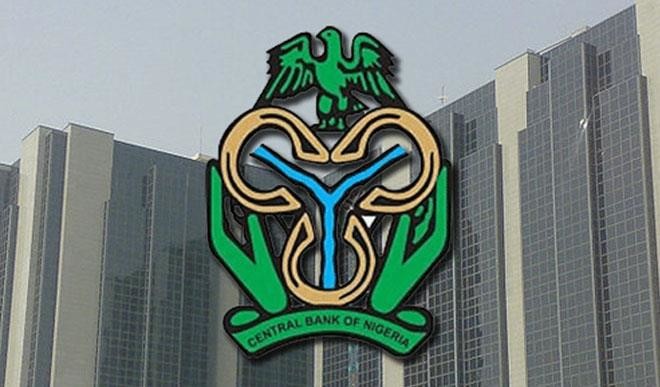Banks should look elsewhere
The Central Bank of Nigeria (CBN) last week introduced charges on cash deposits in commercial banks. The Director of Banking and Payment Systems Department at the CBN, Mr. Dipo Fatokun, announced this policy in a circular titled ‘circular on nationwide implementation of the cashless policy”. The circularstated that charges for cash deposits of less than […]


The Central Bank of Nigeria (CBN) last week introduced charges on cash deposits in commercial banks. The Director of Banking and Payment Systems Department at the CBN, Mr. Dipo Fatokun, announced this policy in a circular titled ‘circular on nationwide implementation of the cashless policy”. The circularstated that charges for cash deposits of less than N500, 000 by individuals attracts zero charge. Cash deposits from N500, 000 to N1million attract 1.5 percent charge; deposits from N1milion to N5million attract 2 percent charge; and cash deposits above N5million shall attract 3 percent charge.
Withdrawals by individuals, on the other hand, which are less than N500, 000 shall attract zero charge. Cash withdrawals from N500, 000 to N1million attract 2 percent; N1million to N5million shall be charged 3 percent; and withdrawals above N5million attract 7.5 percent charge.
Charges for corporate cash deposits are zero charge for less than N3million; 2 percent charge for deposits from N3million to N10million; 3 percent for deposits from N10million to N40million; and 5 percent for deposits above N40million. As for corporate cash withdrawals, less than N3million shall attract zero charge. There would be 5 percent charge for withdrawals from N3million to N10million; 7.5 percent charge for N10million to N40million; and 10 percent charge for withdrawals above N40million.
The new charges, according to the circular, would take effect from April 1, 2017 in the existing cashless states in the country (Lagos, Kano, FCT, Rivers, Ogun, Abia, and Anambra). The policy would take effect on May 1, 2017 in Kaduna, Bauchi, Plateau, Gombe, Bayelsa, Delta, Enugu, Imo, Ondo and Osun states. August 1, 2017 shall be the effective date of the policy in Katsina, Jigawa, Niger, Adamawa, Taraba, Nasarawa, Edo, Oyo, Akwa Ibom, and Ebonyi states. October 1, 2017 would be the effective date of the policy in the last batch of states that include Borno, Benue, Ekiti, Cross River, Kebbi, Kogi, Kwara, Yobe, Sokoto and Zamfara.
The income realized from the charges shall be shared between the CBN and commercial banks in the ratio of 40:60. The circular also added that existing exemptions shall be retained for revenue generating accounts of the federal, states and local governments. Diplomatic missions and donour agencies are also exempted from the payment of all processing fees relating to the implementation of this cashless policy.
When the federal government introduced the Treasury Single Account (TSA) as part of measures to check fraud and misapplication of public funds, the policy was to have some resultant but unintended consequences for commercial banks in the country. Before the introduction of TSA, commercial banks relied heavily on monies deposited by government Ministries, Departments and Agencies (MDAs) for their daily operations. Its introduction has actually affected the liquidity base and performance of the banking sector.
As TSA came into force, the banks had the task of looking out for sources that would guarantee their survival. For many banks, the first strategy was a reduction in workforce. This did not however take them out of the predicament to a great extent. The next thought that came to commercial banks was the transfer of the burden of their survival to customers. It is the opinion of this writer that commercial banks are the brains behind the introduction of these newly announced transaction charges on bank deposits. Although the new regime of bank charges is though beneficial to banks, it seeks to destroy the fundamental principles of cashless policy. The high rate of the charges would discourage customers from depositing money in the banks as a way of avoiding the fees charged on deposits and withdrawal.
Besides the repercussion of TSA on the operations of banks, the volume of bad loans incurred by them is another burdensome liability that is compelling them to force excessive charges on customers. According to the Financial Stability report of the CBN, banks recorded about N1.02trillion bad loans in the first half of 2016 alone.As a consequence of the economic recession in the country, the decline in economic activities resulted in losses for many businesses and hence their inability to repay the loans borrowed from banks. Some financial sources said gloomy commercial activities in the country may have accounted for over N2trillion bad loans.
Commercial banks are thus advised to strategise and recover their bad debts instead of shifting their fiscal burdens of survival, particularlyunder an economic recession, to gullible customers.They should source funds from other business initiatives including encouraging small and medium scale entrepreneurs from keeping their monies in the bank which the new deposit and withdrawal cashless charges seek to undermine.
Before now, the routine charges paid by customers on their bank accounts include Account Maintenance charges; VAT on Account Maintenance charges; charges on transfers, charges on withdrawals via ATM(which were oncestopped by Sanusi Lamido Sanusi as CBN governor).Customers are already paying greater charges than they should. Rather than task them further with multiple charges, the banks can competitively survive by investing in and financing the manufacturing sector of the economy.Business financing should be of investment interest to banks.
The new rate of charges is not likely to affect customers who operate salary accounts. Customers that would be affected most are small and medium scale entrepreneurs whose businesses largely propel the wheel of the Nigerian economy.Overtasking the bank accounts of the latter with gratuitous charges shall only kill their up-and-coming businesses.We thus advise banks to ditch this set of deposit and withdrawal charges look elsewhere for ways of meeting up with their operational cost. May Allah (SWT) remove all obstacles that stand against the growth and development of the Nigerian economy, amin.
